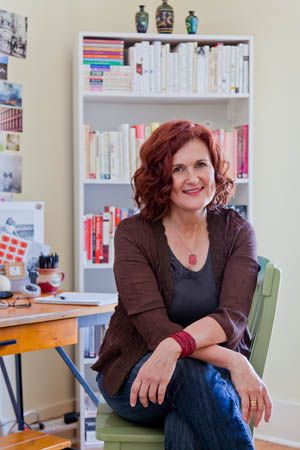
“The best advice I can give is to write your heart and guts out.” In conversation with Karen Karbo, by Anne Rasmussen
ANNE RASMUSSENYour portrait of Los Angeles is so unsparingly, hilariously unforgiving that I found myself laughing out loud every time I came to a new scenic description. You show great compassion and fondness for your characters but not so their city and environs. Even the seasons in this place seem calibrated to mirror the mental state of its citizens. Autumn leaves drop “miserably” from trees “like scabs,” smog “sealed sweat into people’s pores, then laid on a coat of grit for good measure,” and “it seemed as if the earth had abandoned its orbit, leaving Los Angeles stranded under its own, foul, toast-tinted sky.” Even Tony, Mouse’s British fiancé and the only character who’s glad to be there, observes the dull repetition of the strip mall landscape as akin to “the backgrounds in cheap cartoons, where the cat chases the mouse past the same tree, the same house over and over again.” Many of the characters have an almost Stockholm syndrome-like relationship to LA– they can’t imagine living elsewhere. Your protagonist Mouse is the exception, the one that “got away”–to Africa, where she became a documentary filmmaker. But as soon as she returns she is sucked back into the insular, closed circle of the place. LA is personified in her mind by the “Pink Fiend,” a hyper-feminized, catastrophizing inner voice bent on undermining her self-esteem. Can you talk about your experience as an LA native writing about your hometown, and what kind of response this characterization of the place has elicited from readers?
KAREN KARBOLA, like New York, is a hard city to live in if you’re not rich. And by rich, I pretty much mean seven figures. You have to live in one of the canyons, or on the beach, or like one friend, in the mountains above Malibu, to truly appreciate the sub-tropical beauty of the place. And it IS beautiful, a beloved landscape. To this day, whenever I smell orange blossoms or night-blooming jasmine I get homesick. (And I’ve lived in Portland for twenty-five years.) But if you’re like the characters in The Diamond Lane, you’re living in the flats in the Wilshire District, in an apartment without air-conditioning, stuck in traffic for most of your waking hours. (I once read that the average speed limit on the LA Freeways was 17 m.p.h.) So for them, their main experience of the place was heat and smog and exhaust fumes. That said, as you’ve noted, clever you, the place is also calibrated to mirror their mental state: the weather is tough to take and unchanging, as is their collective sense of their careers. Try as they might, they can’t effect change, can’t do a rain dance, can’t create a lightning storm. As far as my readers, no one has ever said “wow, you got LA wrong.”
To listen to the interview, go to Late Night Library.
